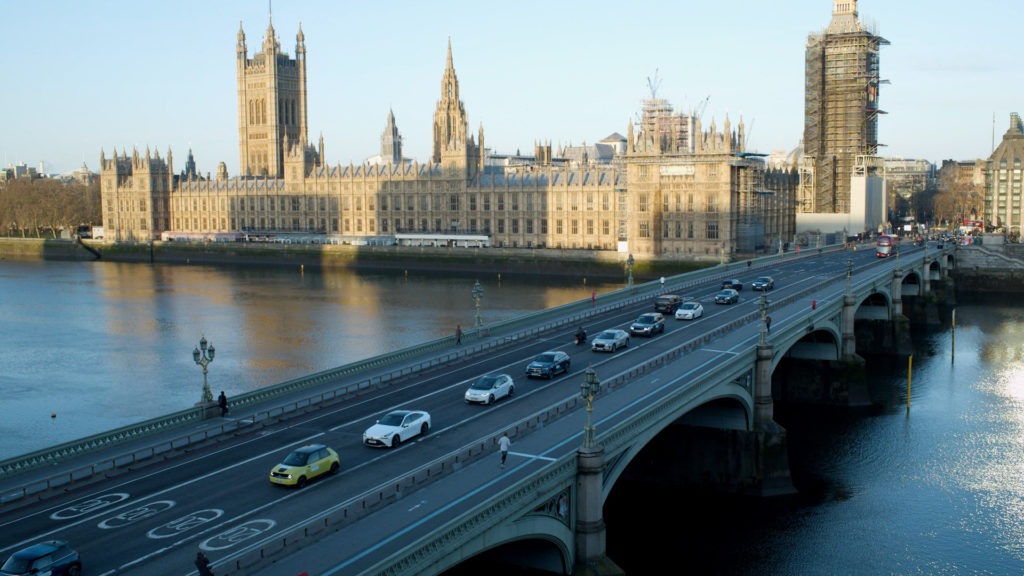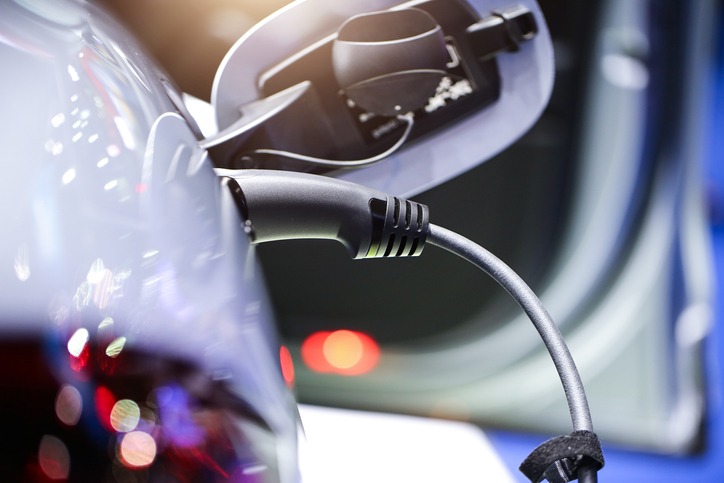More needed for UK to meet net-zero targets
12 July 2021

According to a new report, battery-electric vehicles (BEVs) are critical for the UK to achieve its climate goals, but more needs to be done to reduce emissions.
The Climate Change Committee (CCC) has delivered its 2021 Progress Report to Parliament, making recommendations on how the country can achieve its 2050 net-zero ambitions. Focusing on multiple sectors, the CCC has highlighted transport as one area that is progressing but still needs further legislating to help fight air pollution.
According to the report, the impact of COVID-19 on travel led to an ‘unprecedented’ 29% fall in transport emissions last year. The impact has been particularly pronounced for public transport, which fell more steeply and recovered more slowly than private-car travel after lockdowns began lifting. However, the CCC highlights that reducing private-car use means confidence in public transport needs to be restored.
‘As travel returns, we can expect a significant rebound in transport emissions, even if some of the positive behaviour changes (e.g. increased cycling, less business travel) made in response to the pandemic can be locked in through investment in active travel and broadband,’ the report states. ‘But even with progress in reducing emissions from other sectors, UK emissions in 2021 may well be higher than in 2020.’
There is concern over the change in attitudes to model segments in recent years. Between 2007 and 2016, the average CO2 emissions of a new car decreased by 27%, the report states. This trend reversed between 2017 and 2019, mainly due to increased sales of higher-emitting SUVs. Efficiency improved again in 2020 by 12%, but this was almost entirely due to record sales of electrically-chargeable vehicles (EVs). The high proportion of SUVs, representing one in four new-car sales, remains a concern.
BEV boosting
The report states that sales of BEVs and the deployment of supporting charging infrastructure have increased considerably in recent years. However, policies will be required to drive the accelerated uptake through this decade to ensure emissions targets can be met. A ‘zero-emission vehicle mandate’ is required by the government to prepare for the internal-combustion engine (ICE) ban, which comes into effect in 2030.
According to the CCC, there is also the lack of a comprehensive policy package to enable the delivery of the 2030 transition to BEVs. More needs to be done to build on the phase-out announcement and the positive response of automakers and motorists. This should include a full strategy for widespread deployment of charging infrastructure and a mandate requiring manufacturers to sell a rising proportion of zero-emission vehicles.
To achieve net-zero targets, sales of BEVs should reach 50% of new-car registrations by 2025 and should be at 100% by 2030. However, to help achieve this, the country will need the deployment of 280,000 new charging points by this time. This is lower than was recently recommended by the Society of Motor Manufacturers and Traders (SMMT). In its report, Full Throttle: Driving UK Automotive Competitiveness, it suggests an extra 1.95 million charging points are required by 2030.
The CCC also recommends bringing forward the hybrid and plug-in hybrid (PHEV) ban from 2035 to 2032 to capitalise on the transition into zero-carbon vehicles and help reduce emissions from road transport further.
Awareness increasing
While total car sales fell 30% in 2020, sales of EVs more than doubled, to 175,000 vehicles or 10.6% of all new-car sales. There has also been a shift towards BEVs from PHEVs, with fully-electric models now representing over 60% of EV sales, up from around 50% in 2019.
There are also around 45 BEV models available for sale in the UK, with at least a further three expected to appear in showrooms this year. The CCC also states that new technologies are both lengthening ranges and reducing overall vehicle costs. Battery prices alone have fallen by 13% from 2019 to 2020.
The report also found that while the charging network is expanding, it is doing so inconsistently across the country. On a per-capita basis, charging points in England and Northern Ireland are lower than in Scotland and Wales. A disproportionate share of public points in England are located in London and other urban areas in the South East.
‘We are in the decisive decade for tackling climate change,’ said Lord Deben, chairman of the CCC. ‘The Government must get real on delivery. Global Britain has to prove that it can lead a global change in how we treat our planet. Get it right, and UK action will echo widely. Continue to be slow and timid, and the opportunity will slip from our hands. Between now and COP 26, the world will look for delivery, not promises.’


